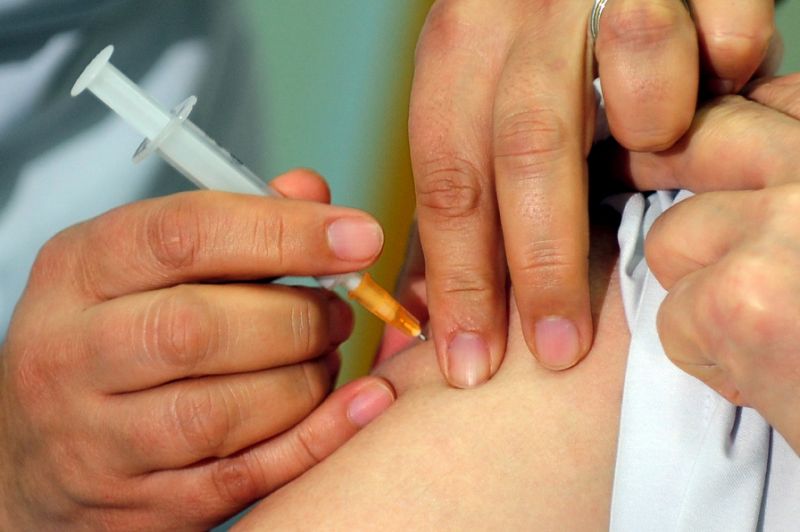Vaccine shows protection against gonorrhoea for first time
Tue 11 Jul 2017, 20:47:04

London: A meningitis vaccine has been shown to protect against gonorrhoea, making it the first drug to prevent sexually transmitted disease that is increasingly becoming resistant to antibiotics, scientists said on Tuesday.
Last week, the World Health Organization (WHO) warned that antibiotic resistance is making gonorrhoea “much harder and sometimes impossible” to treat and new drugs need to be developed to treat the disease.
Each year, an estimated 78 million people are infected with gonorrhoea – which can infect the genitals, rectum, and throat.
The new study of 15,000 young people, published in the Lancet, showed infections were cut by about a
third.
third.
The vaccine, originally developed to stop an outbreak of meningitis B, was given to about a million adolescents in New Zealand between 2004 and 2006.
Researchers at the University of Auckland in the New Zealand analysed data from sexual health clinics and found gonorrhoea cases had fallen 31 per cent in those vaccinated.
The bacterium that causes meningitis, Neisseria meningitidis, is a very close relative of the species that causes gonorrhoea – Neisseria gonorrhoeae, the ‘BBC News’ reported.
However, the vaccine – known as MeNZB – is no longer commercially available. Many of its components are also in a new meningitis B jab – called 4CMenB.
No Comments For This Post, Be first to write a Comment.
Most viewed from Health
AIMIM News
Latest Urdu News
Most Viewed
May 26, 2020
Do you think Canada-India relations will improve under New PM Mark Carney?
Latest Videos View All
Like Us
Home
About Us
Advertise With Us
All Polls
Epaper Archives
Privacy Policy
Contact Us
Download Etemaad App
© 2025 Etemaad Daily News, All Rights Reserved.






























